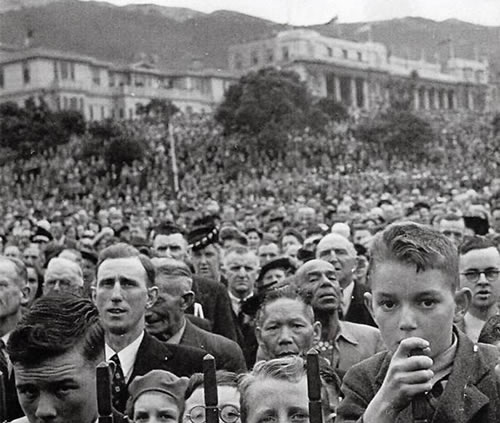
George at “Where is God?” asks “Why is God bad at marketing?” He's addressing primarily the concept that relatively few people get saved. Jesus seemed to think the same thing when He said, “Enter by the narrow gate. For the gate is wide and the way is easy that leads to destruction, and those who enter by it are many, but the gate is narrow and the way is hard that leads to life, and those who find it are few” (Mat 7:13-14). George's assumption is simple: “God wants as many humans as possible to believe in Him.” Jesus confirms that few will enter.
I suspect that my response to George would be somewhat different than a large number of other Christians because I suspect that a large number of other Christians would agree that God wants as many people as possible to believe in Him. This, of course, presents a problem to the thinking Christian, the problem that George has addressed. I would argue, however, that the question is faulty because the premise is faulty. It's a common belief, but I think a faulty one, that God wants to save as many people as possible.
First, where does it come from? Well, there is biblical support in two basic places. In 1 Tim. 2:4 Paul tells Timothy that God “desires all people to be saved and to come to the knowledge of the truth.” It is irrefutable, then, that God “wants to save as many people as possible”. Actually, God desires to all people to be saved. The second place is Peter's words in 1 Peter 3. Peter says that the Lord “is patient toward you, not willing that any should perish, but that all should reach repentance” (1 Peter 3:9). So it is clearly God's will to save everyone.
Well, there you have it ... incontrovertible proof that God wants to save as many people as possible. Or do you? Here's the problem. If God wants to save as many people as possible, why doesn't He? Is something preventing Him? If something is preventing Him from doing what He wills, then can it be rightly said that He is “Almighty” -- Sovereign? If it is His will to save all, and not all are saved, then it would appear that something has the capacity to prevent Him from accomplishing what He wills to accomplish. Or is it possible that this is too simplistic a reading of these passages?
I ask this because of Rom. 9:22. Paul says, “What if God, although willing to demonstrate His wrath and to make His power known, endured with much patience vessels of wrath prepared for destruction?” Now, we Christians are so happy to read that God endures with much patience that we skip right over what Paul says God wills here. God wills “to demonstrate His wrath and make His power known.” Now, that should make you pause for a moment. It is God's will to demonstrate His wrath, and it is God's will that all should be saved. This same dichotomy is found elsewhere. God says, “I take no pleasure in the death of the wicked” (Ezek. 33:11), yet we know He carries it out ... fairly regularly. So it seems that God has desires in both directions.
This really shouldn't be a surprise to us. We often have competing desires. We want to spend time with friends, but we also want to spend time with family. We want to get some stuff done around the house, but we also want to sit and watch TV. We want to lose weight, but we also love our desserts. We are creatures of competing desires. What determines what we do? Jonathan Edwards, in his famous essay on Freedom of the Will, suggests that we will also act according to our strongest desire. This is the simplest explanation of free will when our desires are in competition. We may want a variety of things, but the strongest desire will determine our choice. All things being equal, when the man with the gun says, “Your money or your life,” we’d kind of like to keep both, but our strongest drive of self-preservation causes us to choose to hand over the money. All things being equal, the fireman would rather not run into the burning building, but his training and commitment mean that the notification that there is a child in there overrides his desire to remain out of harm's way.
God, too, has competing desires. He would like it if there were no wicked. He would like it if everyone was saved. But from His actions, he makes it pretty clear that something else is overriding these desires. In this case that “something else” is His will to demonstrate His wrath and power. Since He desires to demonstrate His character fully, and the only way to demonstrate it fully is to include His wrath and power, it would seem that, in the final analysis, perhaps God doesn’t actually want “as many humans as possible to believe in Him.” Perhaps He wants some to believe, and some to experience His wrath. Scripture tells us as much. According to Paul, “He has mercy on whom He desires, and He hardens whom He desires” (Rom. 9:18). So while He ensures that every person knows about Him (Rom. 1:19-20), He also allows them to “suppress the truth in unrighteousness” (Rom. 1:18) and pay the price because while He would like to save all, He has a better plan in mind ... a better plan than saving all human beings. I suspect that the indignation so many of us humans feel at that concept is due to our over-inflated view of the importance of the creature known as "humans", something perhaps we need to watch out for.
No comments:
Post a Comment